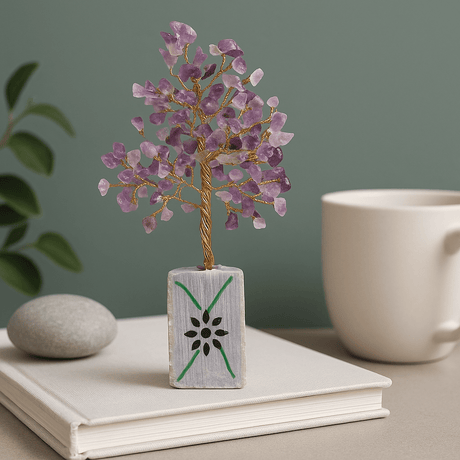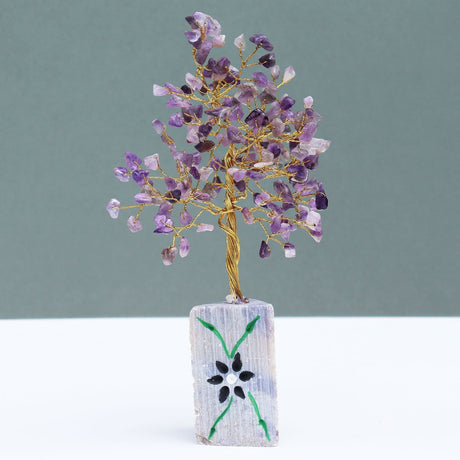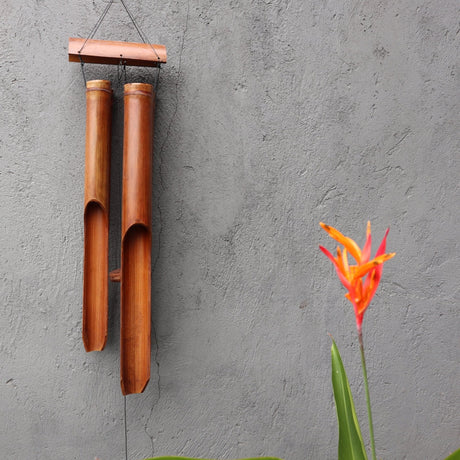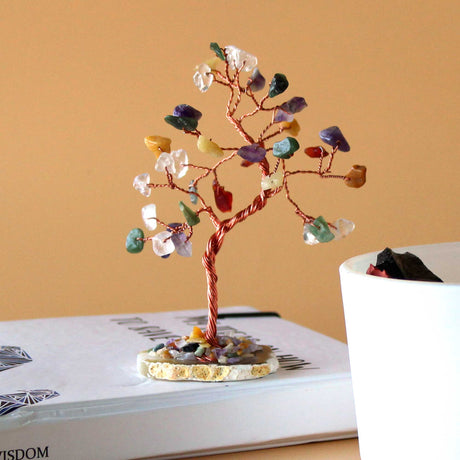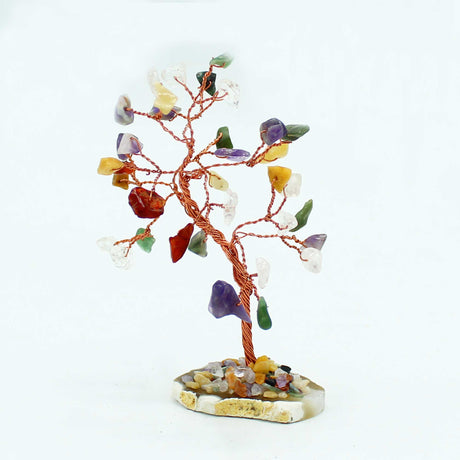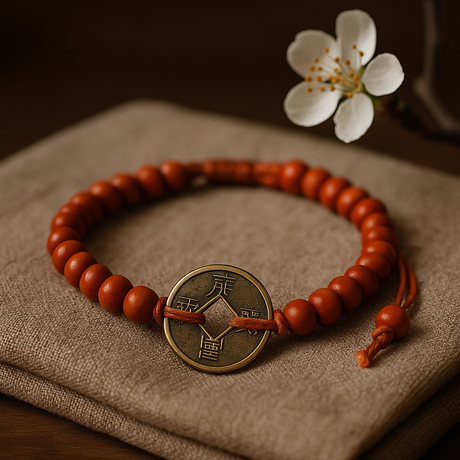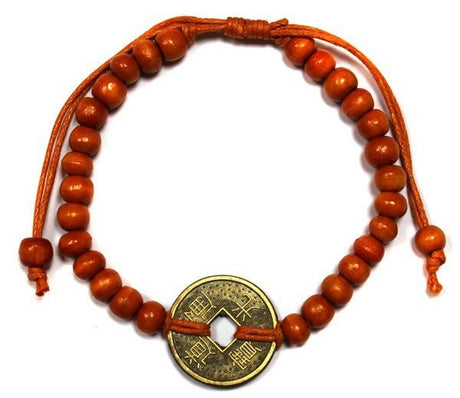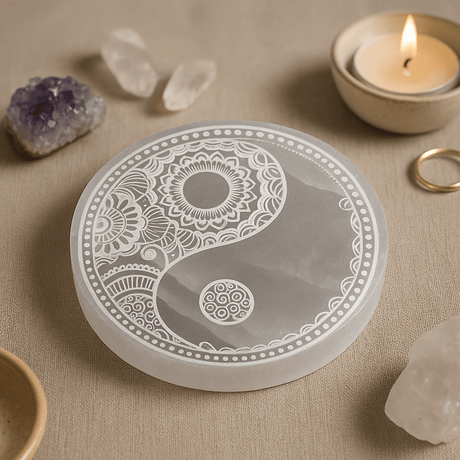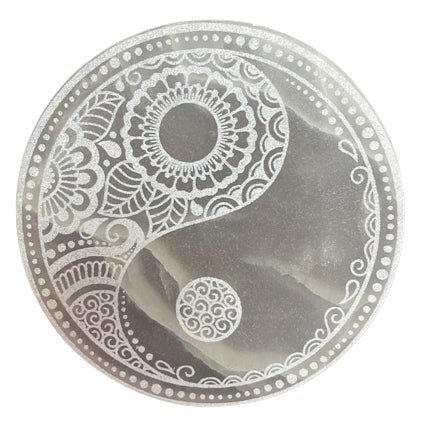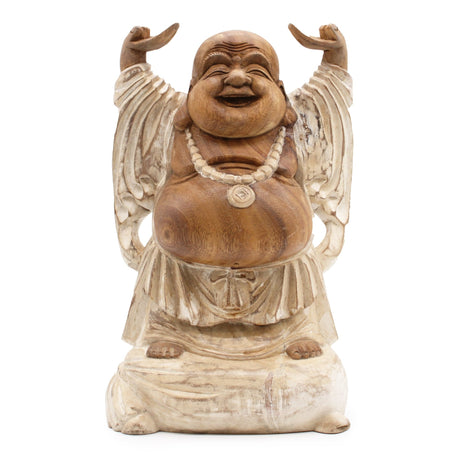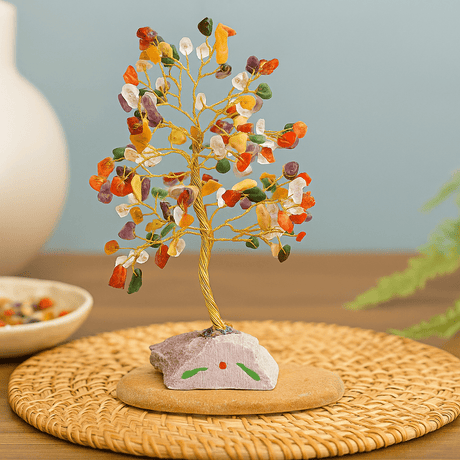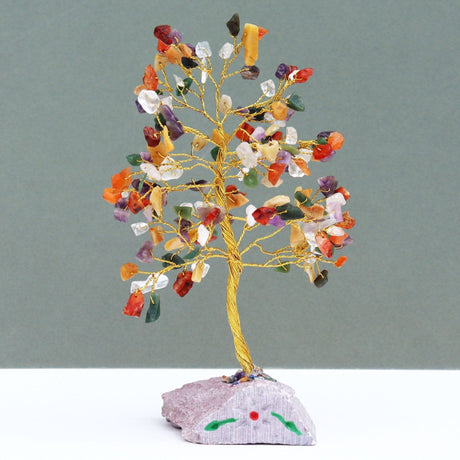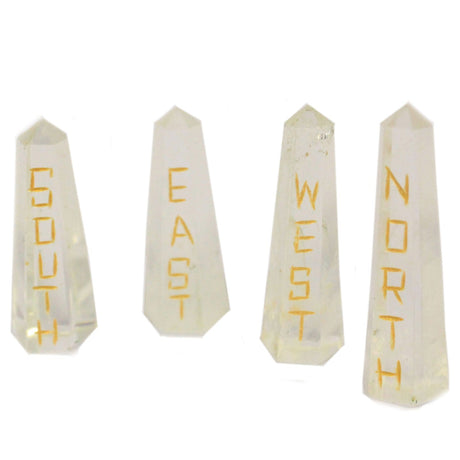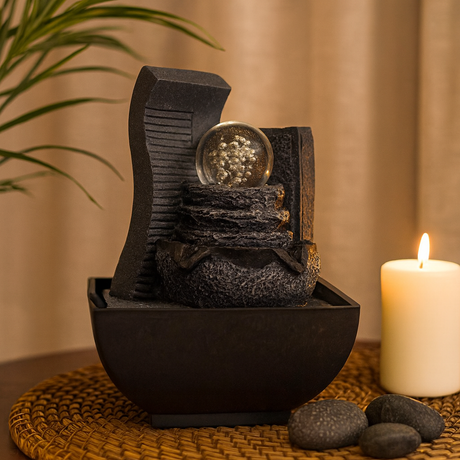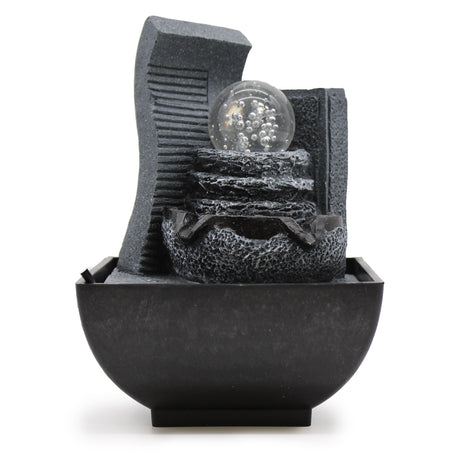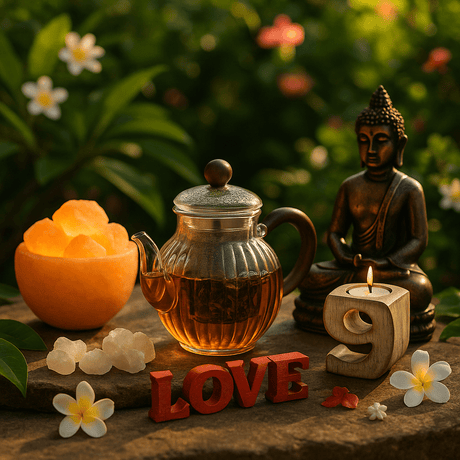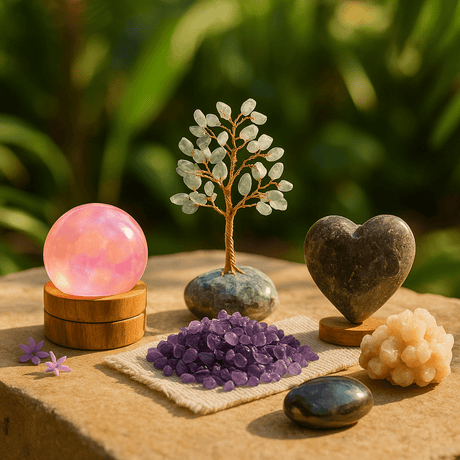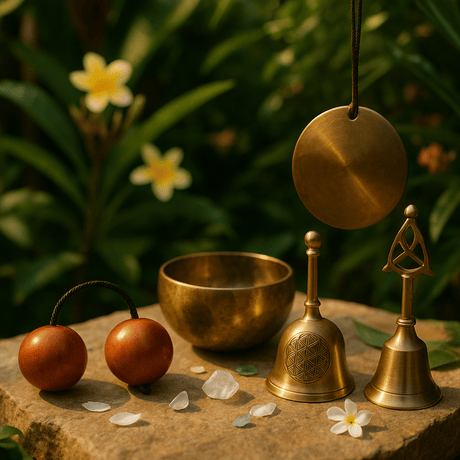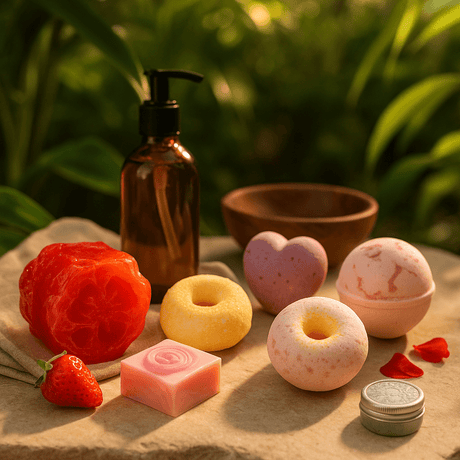🏡 What Is Feng Shui?
Feng Shui (pronounced fung shway) is an ancient Chinese practice that translates to "wind and water." It's a philosophy and practice concerned with harmonizing living spaces to create a flow of positive energy (chi) for the well-being of its inhabitants.
Rooted in Taoism, a philosophy emphasizing balance and nature, Feng Shui has been practiced for thousands of years. Emperors built their palaces according to its principles, and it remains a popular practice in China today. In the West, Feng Shui has gained significant interest in recent times, offering an alternative approach to interior design that prioritizes balance and well-being.
But is Feng Shui just about rearranging furniture? Not quite. While placement plays a role, Feng Shui encompasses a holistic approach to your environment, considering the flow of energy, the placement of objects, and the use of symbolism to create a harmonious and supportive space.
Intrigued by the idea of creating a more positive and balanced environment? Join us as we delve deeper into the fascinating world of Feng Shui, exploring its principles, practices, and potential benefits!
🌟 How Does Feng Shui Work?
Feng Shui goes beyond aesthetics; it's about creating an environment that fosters well-being. Let's explore the core principles that guide this ancient practice:
The Flow of Chi (Energy). Central to Feng Shui is the concept of chi, the vital life force that flows through everything. Feng Shui aims to enhance the flow of positive chi (sheng chi) within a space and minimize stagnant or negative chi (sha chi). Imagine your home as a river – you want the energy to flow smoothly, not become blocked or sluggish.
Yin and Yang Balance. Feng Shui emphasizes the importance of balance between opposing yet complementary forces, like yin (darkness, stillness) and yang (light, activity). An ideal space incorporates both yin and yang elements to create a sense of harmony and avoid an excess of either energy.
The Five Elements. Feng Shui recognizes five elements – earth, metal, water, wood, and fire. Each element is associated with specific colors, shapes, and materials. By incorporating these elements in a balanced way, you can create an environment that supports different areas of your life, like promoting creativity (wood element) or fostering relationships (fire element).
The Bagua Map. This octagonal map serves as a blueprint for applying Feng Shui principles to your space. Each section of the bagua corresponds to a specific life aspect, such as wealth, career, or health. By evaluating the energy flow and placement of objects in each zone, you can make adjustments to enhance the corresponding area of your life.
Beyond the Basics. While these principles form the foundation, Feng Shui encompasses many other considerations. The placement of furniture, the use of mirrors, and the selection of artwork all play a role in harmonizing the energy within a space.
Remember, Feng Shui is not a rigid set of rules. It's a flexible framework that allows you to tailor your environment to your specific needs and preferences. By understanding these core principles, you can begin to experiment and create a space that feels not only beautiful but also supportive and energizing.

🏡 Feng Shui Basics
Intrigued by the idea of creating a more positive and balanced environment with Feng Shui, but unsure where to begin? Here are some fundamental rules that anyone can incorporate to enhance the flow of chi (energy) in their home:
De-clutter and Clean. Stagnant energy loves clutter! Start by decluttering your space. Get rid of unused items, donate what you don't need, and tidy up surfaces. A clean and organized space allows energy to flow freely.
Embrace the Light. Natural light is considered auspicious in Feng Shui. Open your curtains, clean windows, and try to arrange furniture away from windows to maximize natural light throughout the day.
The Power of the Entryway. Your entryway is considered the "mouth of chi" – the first impression your home makes on energy flow. Keep it clutter-free, well-lit, and welcoming. Place a healthy green plant or a doormat to capture positive energy.
Commanding Position. In key areas like your living room or bedroom, identify the "commanding position" – the spot where you feel most in control. Arrange furniture so you sit or sleep facing the entryway, fostering a sense of security and awareness.
Mirror Magic. Mirrors can be powerful tools in Feng Shui. Strategically placed mirrors can reflect positive energy and create a sense of spaciousness. Avoid placing mirrors directly opposite doors or your bed.
Beware of Sharp Edges. Sharp edges and corners, like those on furniture or shelves, are considered to emit "sha chi" (negative energy). If you have furniture with sharp corners, soften them with throws or plants.
The Art of Balance. When arranging furniture, avoid blocking pathways or creating a sense of crowding. Aim for a balanced layout that allows for easy flow of movement within the space.
Inviting Scents. Pleasant aromas can uplift the energy of your home. Use essential oils, scented candles, or fresh flowers to create an inviting atmosphere.
Listen to Your Intuition. Ultimately, Feng Shui is about creating a space that feels good to you. Trust your intuition and make adjustments that resonate with your personal comfort and well-being.
Remember, these are just starting points! As you experiment with these basic principles, you can delve deeper into the fascinating world of Feng Shui, exploring specific techniques for different areas of your home and tailoring the practice to your unique needs.

🌟 Feng Shui Mistakes to Fix
Here are some common mistakes to avoid and simple solutions to get your chi flowing smoothly:
Mirror Mishaps. Mirrors can be powerful Feng Shui tools, but placement is crucial. Avoid placing mirrors directly opposite doors or your bed. Doors are considered energy portals, and a mirror facing them can reflect positive energy right out. Similarly, a mirror reflecting your sleeping form is said to disrupt sleep. Reposition mirrors to reflect pleasant views or natural light.
Pokey Problems. Sharp edges and pointed corners, like those on furniture or shelves, are believed to emit "sha chi" (negative energy). If your home is decorated with furniture that has sharp corners, soften them with throws, plants, or strategically placed pillows. Rounded furniture is considered more harmonious with Feng Shui principles.
The Clutter Trap. This one's a biggie! Clutter is a major barrier to positive energy flow. Don't get bogged down trying to achieve magazine-worthy minimalism. However, aim for a clutter-free environment where everything has a designated place. Letting go of unused items and regularly tidying up can significantly improve the energy within your space.
The Dominant Door. While the commanding position is important, especially in the bedroom, avoid placing your bed directly under a window or dominant architectural features like beams or sloped ceilings. This can create a feeling of vulnerability and disrupt sleep. If rearranging furniture isn't an option, consider using a canopy bed or hanging drapes to create a sense of security.
The Bathroom Blunder. Bathrooms are considered areas of water drainage, potentially leading to a loss of positive energy. To counter this, keep the bathroom door closed when not in use and consider placing plants or bowls of water with fresh flowers to balance the energy flow.
Fish Tank Frenzy. While visually appealing, aquariums are not universally recommended in Feng Shui. Moving water can represent instability, and aquariums require careful placement. If you have a fish tank, ensure it's in a healthy and thriving state and positioned in a zone associated with wealth or career, not health or relationships.
Remember, Feng Shui is a personalized practice. These are just some common pitfalls to avoid. The key is to create a space that feels balanced, harmonious, and supportive for you. Don't be afraid to experiment and trust your intuition!

💰 Can Feng Shui Impact Wealth And Prosperity?
Feng Shui isn't just about creating a calming environment; it can also be used to attract wealth and prosperity. Here's how specific practices can energize your space and potentially bolster your financial well-being:
The Wealth Corner. According to the bagua map, the southeast sector of your home is considered the wealth corner. Activate this area by incorporating elements that symbolize abundance:
- Colors. Opt for vibrant and prosperous colors like purple, green, and gold. Paint an accent wall or add decorative items in these hues.
- Symbols of Wealth. Place statues or figurines associated with prosperity, such as a three-legged toad (wealth protector) or a money tree (growth and abundance). Fresh flowers also symbolize growth and can enhance the energy in this zone.
- Water Features. Water represents wealth flow. Consider a small tabletop fountain or a bowl of decorative water pebbles. Keep the water feature clean and flowing for optimal effect.
Inviting Abundance. The entryway is considered the "mouth of chi" in Feng Shui. Make a welcoming first impression by keeping it clutter-free, well-lit, and displaying symbols of prosperity like a bowl of coins or a healthy green plant.
Commanding Finances. In your workspace or home office, ensure you have a commanding position at your desk. Sit facing the door and avoid having your back to the entrance. This fosters a sense of control and power, potentially impacting your financial decision-making.
Healthy Finances, Healthy Home. A leaky faucet or a broken doorknob not only represents wasted resources but also signifies a disruption in the flow of positive chi. Address any maintenance issues promptly to prevent financial stagnation.
Mindset Matters. While Feng Shui can create a supportive environment, it's not a magic bullet. Maintain a positive and abundant mindset. Visualize financial success, set clear financial goals, and take action towards achieving them.
Remember, creating wealth is a multifaceted approach. Feng Shui can be a powerful tool, but it should be combined with sound financial planning, hard work, and a positive attitude to truly cultivate prosperity.
🌈 Choosing Feng Shui Colors
Colors are a powerful tool in Feng Shui, influencing the energy and mood of a space. Here's a guide to selecting appropriate colors for different areas of your home:
Living Room. A vibrant and inviting space for gathering. Opt for warm and energizing colors like red, orange, or yellow. Accent with green for harmony and growth.
Bedroom. A haven for relaxation and peace. Choose calming colors like blue, green, or light neutrals. Lavender promotes tranquility, while soft pinks encourage romance.
Kitchen. A center of activity and nourishment. Earthy tones like light brown or yellow foster stability and creativity. Accents of red can stimulate appetite.
Bathroom. A space for cleansing and rejuvenation. Light blues and greens promote tranquility and represent water, the element associated with this area.
Home Office. A zone for focus and productivity. Sharps like navy blue or teal encourage concentration. Earthy tones like brown promote stability, while accents of green stimulate growth.
These are just general guidelines. Consider your personal preferences and the overall feel you want to create in each space. Don't be afraid to experiment with different shades and hues within the recommended color families.

🌿 The Power of Plants in Feng Shui
Living plants are vibrant symbols of growth and positive energy in Feng Shui. Here's how to incorporate them strategically:
Plant Selection. Choose healthy, thriving plants with round or oval leaves. These shapes are considered more harmonious than sharp or pointed leaves. Some plants considered particularly auspicious include:
- Snake Plant. Promotes good luck and purification.
- Money Plant. Attracts wealth and prosperity.
- Peace Lily. Promotes peace and tranquility.
- Bamboo. Symbolizes growth and longevity.
Placement Matters. Position plants strategically to enhance the energy flow in different areas:
- Living Room. Plants near the entrance attract positive energy.
- Bedroom. Plants in the corners balance the energy and promote relaxation (avoid large plants directly next to your bed).
- Kitchen. Herbs placed on windowsills or countertops add a touch of life and promote positive energy.
- Bathroom. Plants placed away from direct water sources add a touch of life and can help balance moisture levels.
Proper plant care is crucial. Wilted or unhealthy plants can have the opposite effect, attracting stagnant energy. Choose plants suited to the light and humidity levels of your space and ensure they're well-watered and thriving.
🧘 Conclusion
Feng Shui offers a practical approach to creating a balanced and supportive home. By incorporating core principles like chi flow and color harmony, you can cultivate a space that fosters relaxation, improves sleep, and even supports financial goals. Experiment, personalize, and design a haven that reflects your well-being journey. This series explores specific Feng Shui practices for different areas of your home!

